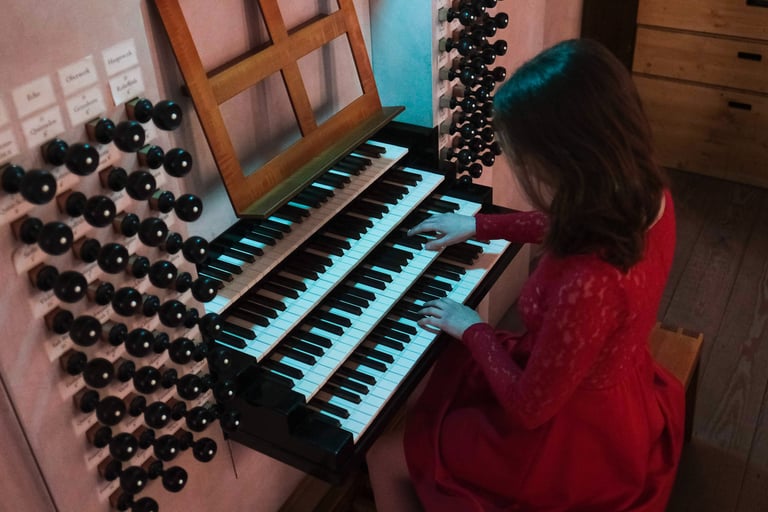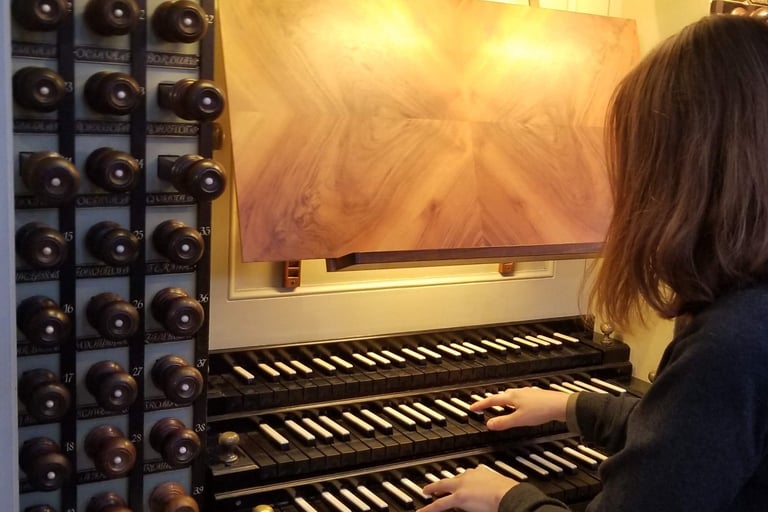Celina Kobetitsch serves as the Organist at St. Philip the Deacon Lutheran Church in Plymouth, Minnesota, where she manages an international organ series and helps run a vibrant music program consisting of four choirs and a year-round music series. She previously held the position of Associate Director of Music at Trinity Episcopal Cathedral in Little Rock, Arkansas.
Kobetitsch is an active composer and was recognized with the Young Artist prize in the 2024 AGO Women Composer Composition Contest. Her works have been commissioned by churches across the United States. Her portfolio includes works for organ, including solo pieces, transcriptions, hymn settings, as well as liturgical music, psalmody, and music for choirs.
Kobetitsch has received several prestigious accolades, including awards from the U.S. Fulbright program and the DAAD postgraduate music program. In 2024, she was a prizewinner at the Arthur Poister Competition. In 2022, she earned first prize at the Fugato Organ Competition in Bad Homburg and the Ruth and Paul Manz Organ Scholarship from the Lutheran School of Theology Chicago.
Known for her musical sensitivity and virtuosic skill, American organist Celina Kobetitsch frequently performs in concerts across Europe and the United States. With her extensive international background, she has positioned herself as a historically informed artist with exceptional musical integrity. Her passion lies in exploring the multicultural and multidimensional opportunities that the organ offers, aiming to enlighten, educate, and captivate her audience as a performer. She consistently curates diverse and original concert programs, striving to showcase the vast sound possibilities of the organ. While Kobetitsch has cultivated profound knowledge of centuries of historical organ music, she is equally enthusiastic about featuring 21st-century compositions, particularly those by underrepresented composers.
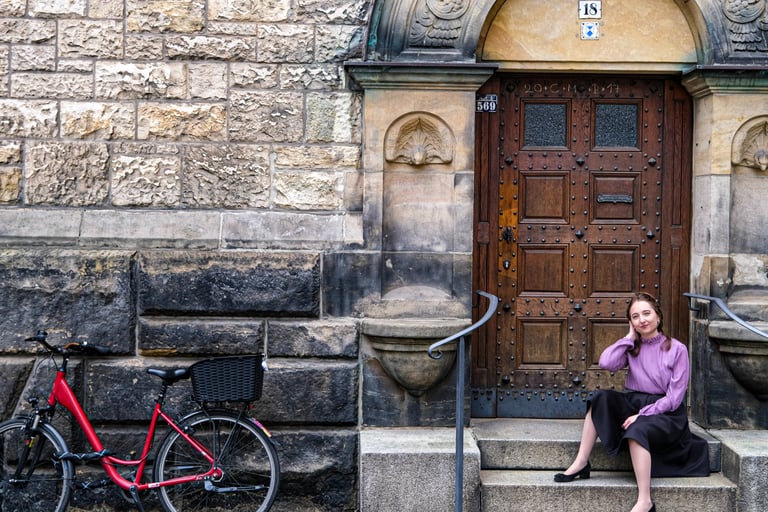

Biography
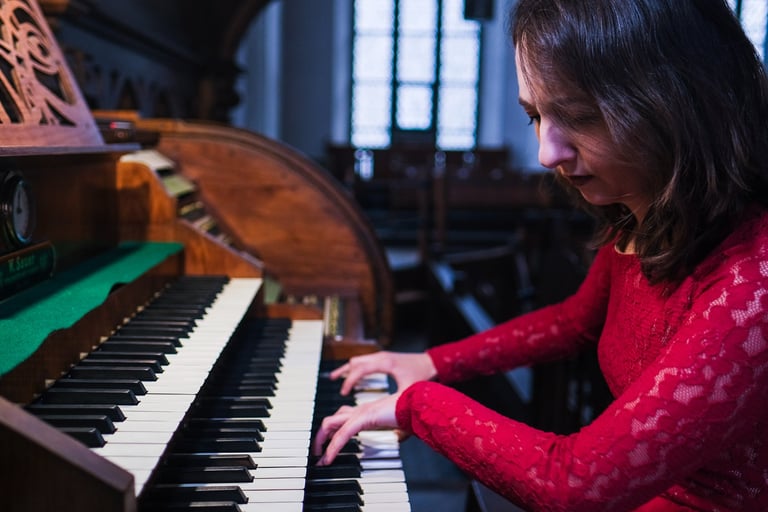

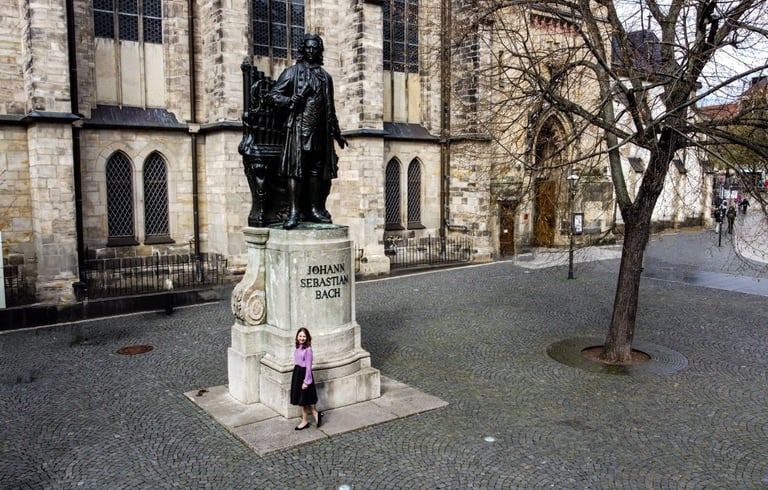

Kobetitsch obtained her master’s degree from the Hochschule für Musik Leipzig Felix Mendelssohn-Bartholdy, where she concentrated on organ performance and improvisation under the mentorship of Martin Schmeding and Nicolas Berndt, while also studying minors in harpsichord with Tobias Schade and choral conducting with Tobias Löbner. Her master’s thesis, titled, “Reger’s Chorale Fantasies: Exploring their Relationship with the North German Chorale Fantasia and the Influence of Late 19th Century Program Music,” achieved top marks and notable distinction.
Prior to studying in Leipzig, Germany, Kobetitsch earned an artist diploma from the Conservatoire de Toulouse, where she studied the organ under Michel Bouvard and harpsichord with Yasuko Bouvard. Her participation in the improvisation academy in the Pays de la Loire, regular improvisation classes with Philipe Lefebvre, and study trips to Paris and northern France significantly enhanced her comprehension and performance of French music.
Kobetitsch has also attended Baroque organ workshops in the Czech Republic, conducting seminars in Ireland, and has been invited to perform in Belgium and the Netherlands, as well as Denmark.
Having performed concerts at major venues such as St. Nicholas Church in Leipzig, St. Wenzel's Church in Naumburg, the Basilica of St. Sernin in Toulouse, among many others, Kobetitsch has thus gained experience on some of the world's most magnificent organs. Although she has established herself as a skilled organist, she also possesses a strong background in piano and completed her Bachelor studies at Oberlin Conservatory of Music in the USA, where she studied both piano and organ.
During her studies at Oberlin, she was organist for Bethany English Lutheran Church in Cleveland, Ohio as well as interim organist at Bay Presbyterian Church while also working as a staff piano accompanist for Oberlin Conservatory. She also led an organization called Concerts for Good and raised thousands of dollars for local charities through self-organized benefit concerts. Her passion for community outreach continues to this day.
Kobetitsch began teaching piano at the age of 15, and received the Carol Nott Prize for Excellence in Piano Pedagogy at age 21. Her background in piano chamber music has also contributed to her activities as an organ accompanist. She continues to perform with many ensembles and soloists as pianist, organist, and harpsichordist.
